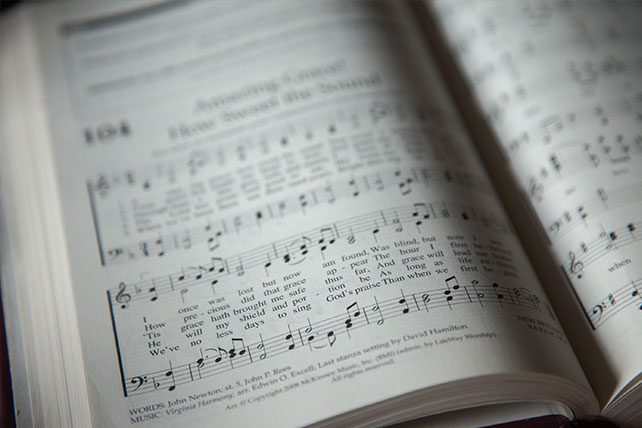3. It’s All About the Verse
While the chorus is the most important element of most contemporary songs, classic hymns did not contain choruses. Many hymnologists will say that if a song has a chorus or refrain—even if the verses are composed in hymn meter—it is a “gospel song,” not a hymn (think “Blessed Assurance”).
Hymn vs song? Is this pedantic? Maybe. Modern songwriters draw from so many influences that the lines begin to blur. Sometimes clear-cut distinctions between hymns, gospel songs, spirituals, and praise and worship songs are unhelpful. But in general, a hymn tells a story or presents an argument in a series of verses, each one building on the other or continuing the narrative of the other. Because of this, hymns can cover more theological ground or present a wider narrative arc than other songs.
RELATED: The “Contract” Between Worship Leader and the Congregation
This doesn’t make In Christ Alone better than Holy Is the Lord. Rather, we should be thankful that we have so many different kinds of wonderful songs, like In Christ Alone and Holy Is the Lord.
4. Praise First, Poetry Second
Hymn vs song? We’ve already established that a hymn is a kind of poem. But the reason you can read many fantastic poems and think, “I have no idea what this is about,” is because many classic and modern poets are chiefly concerned with the sound of the words or the images conveyed, rather than any specific meaning. But the hymnist William Cowper said of his hymn-writing:
“I always write as smoothly as I can, but that I never did, never will, sacrifice the spirit or sense of a passage to the sound of it.”
Hymn vs song? A hymnist writes in such a way that all worshipers can understand and sing along, regardless of their level of education or their experience with literature and poetry. The hymnist’s goal is the same goal of any true writer of songs for God and His church: to give worshipers a language for thankfully praising our Lord and for speaking His truth to each other.


